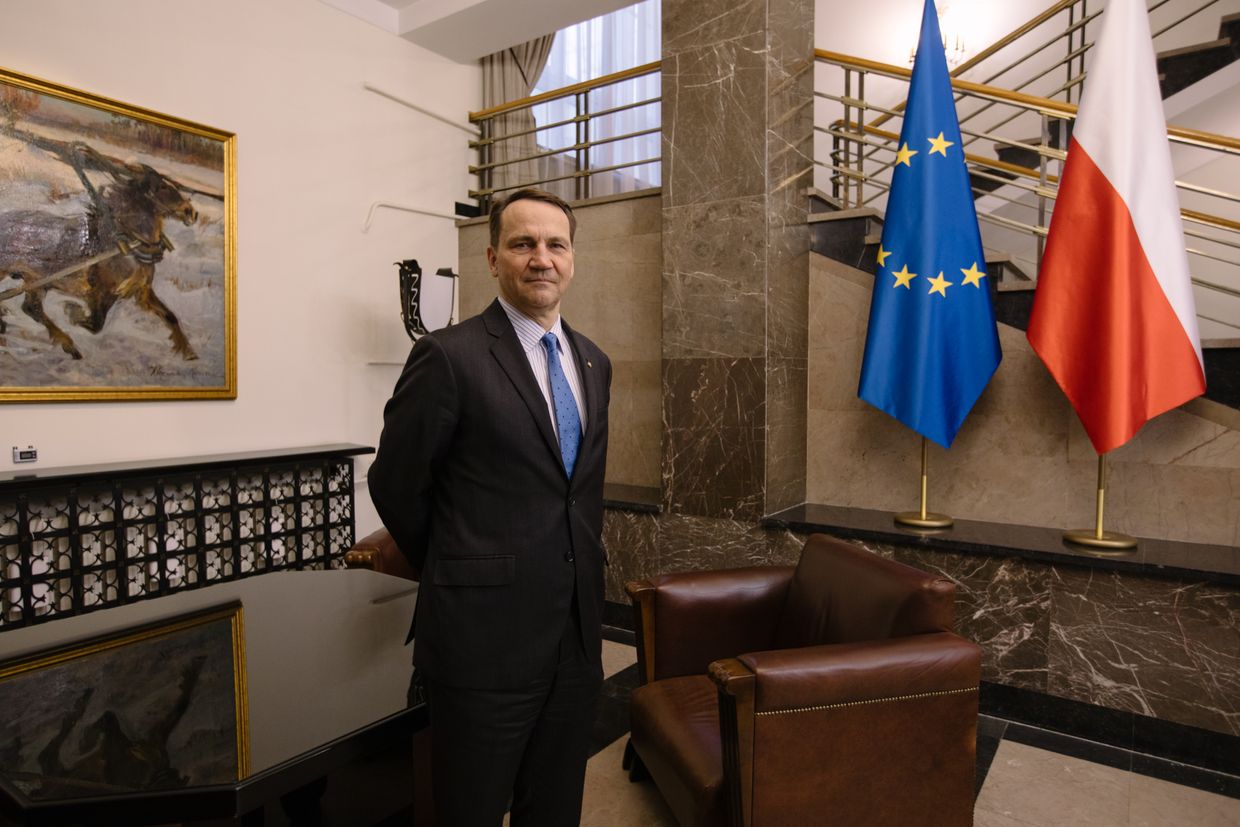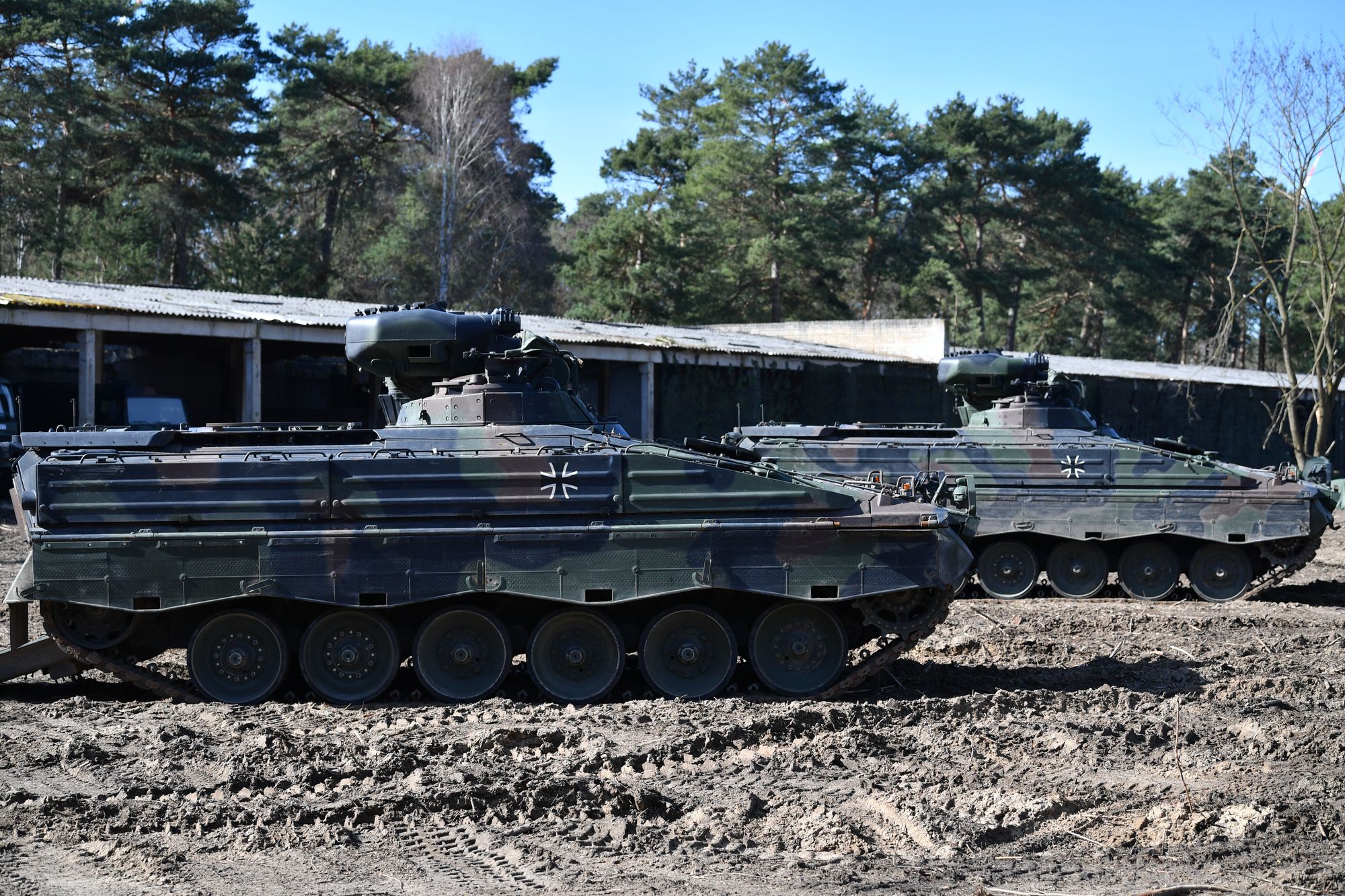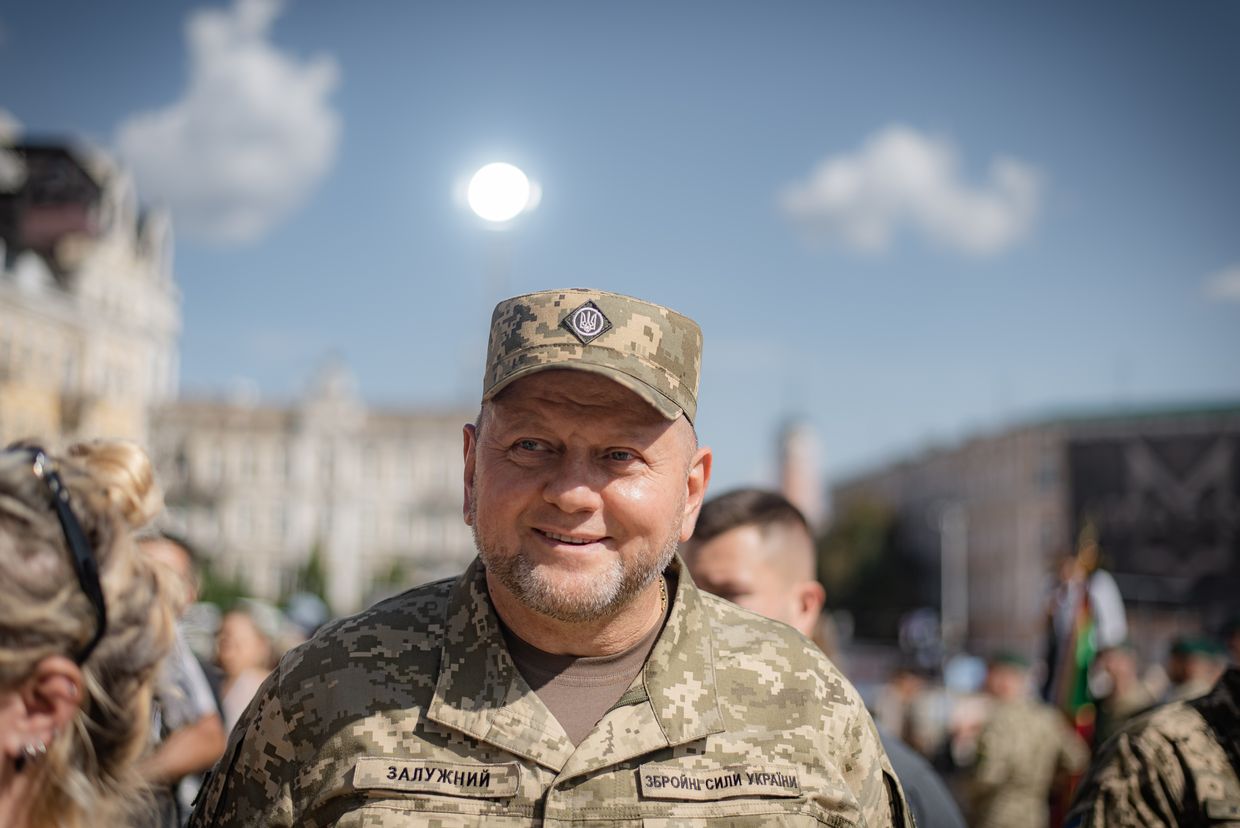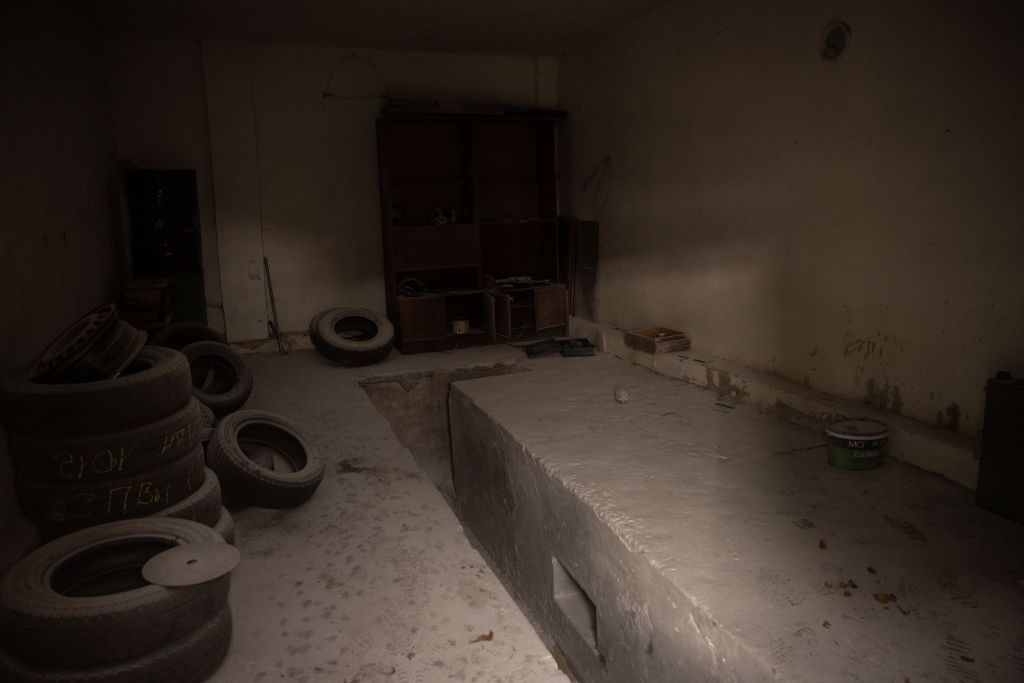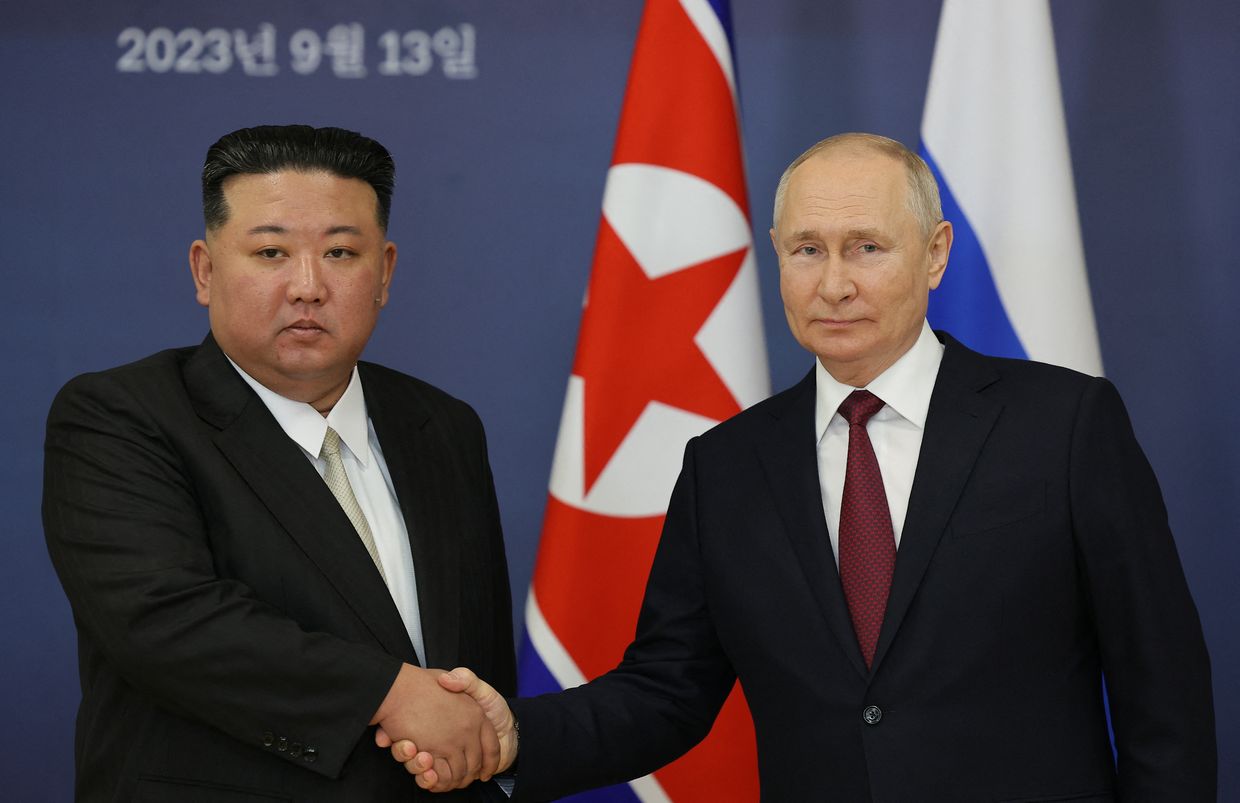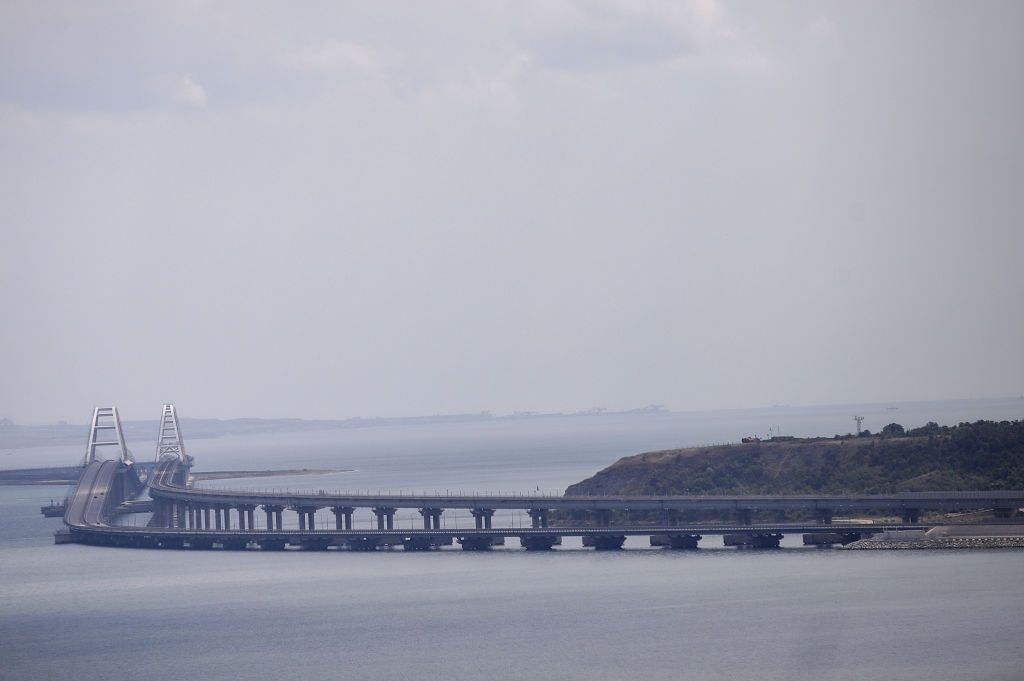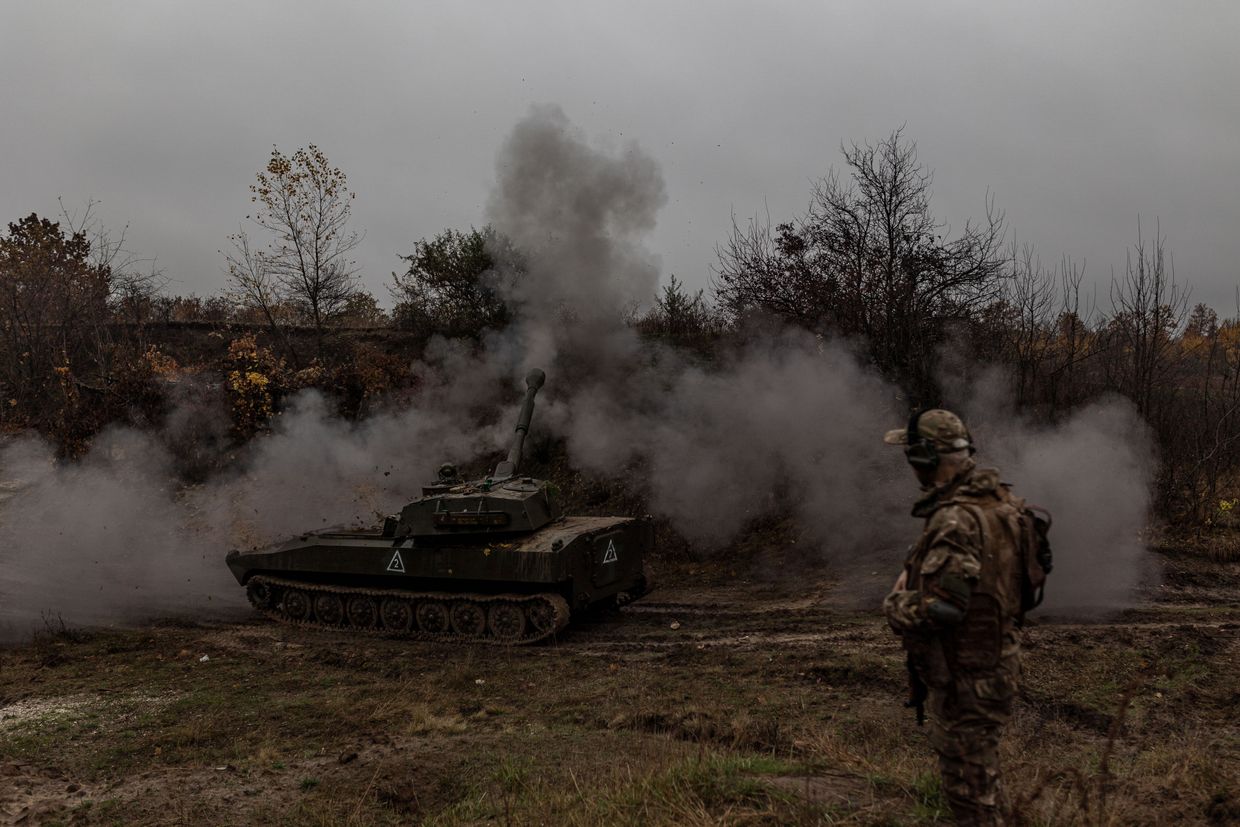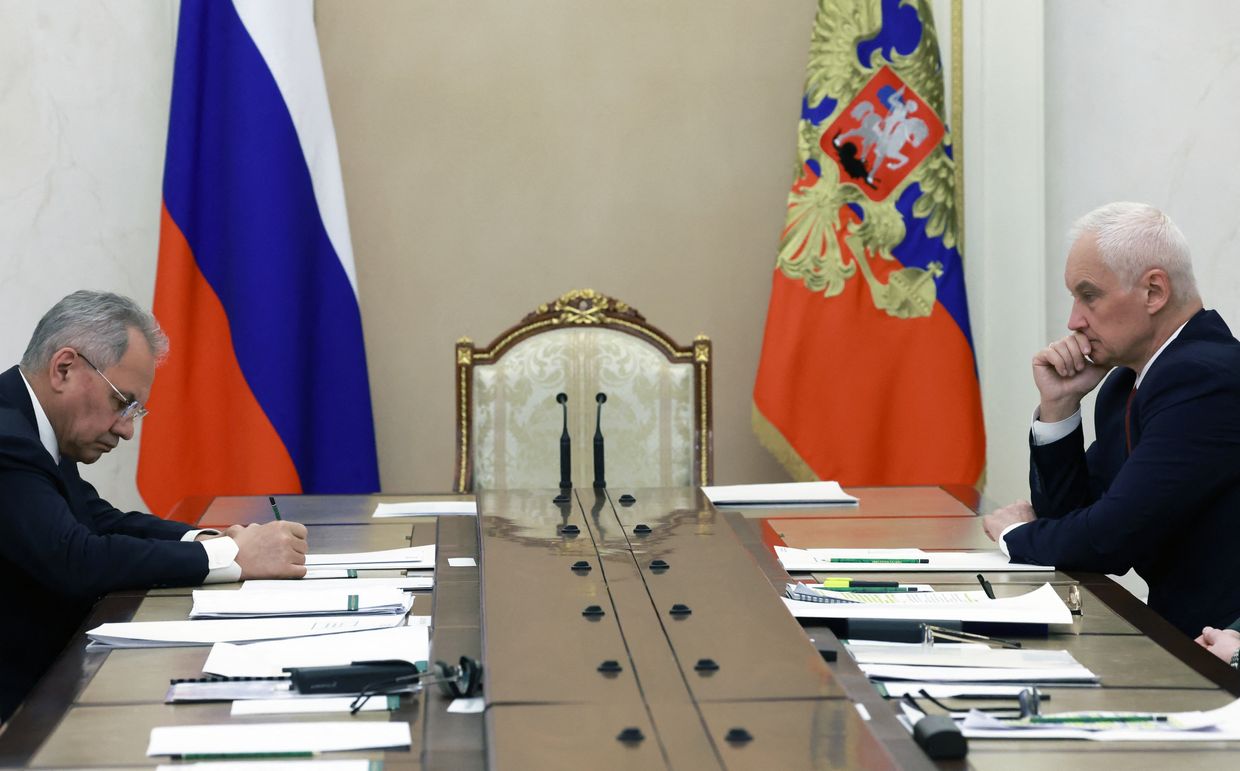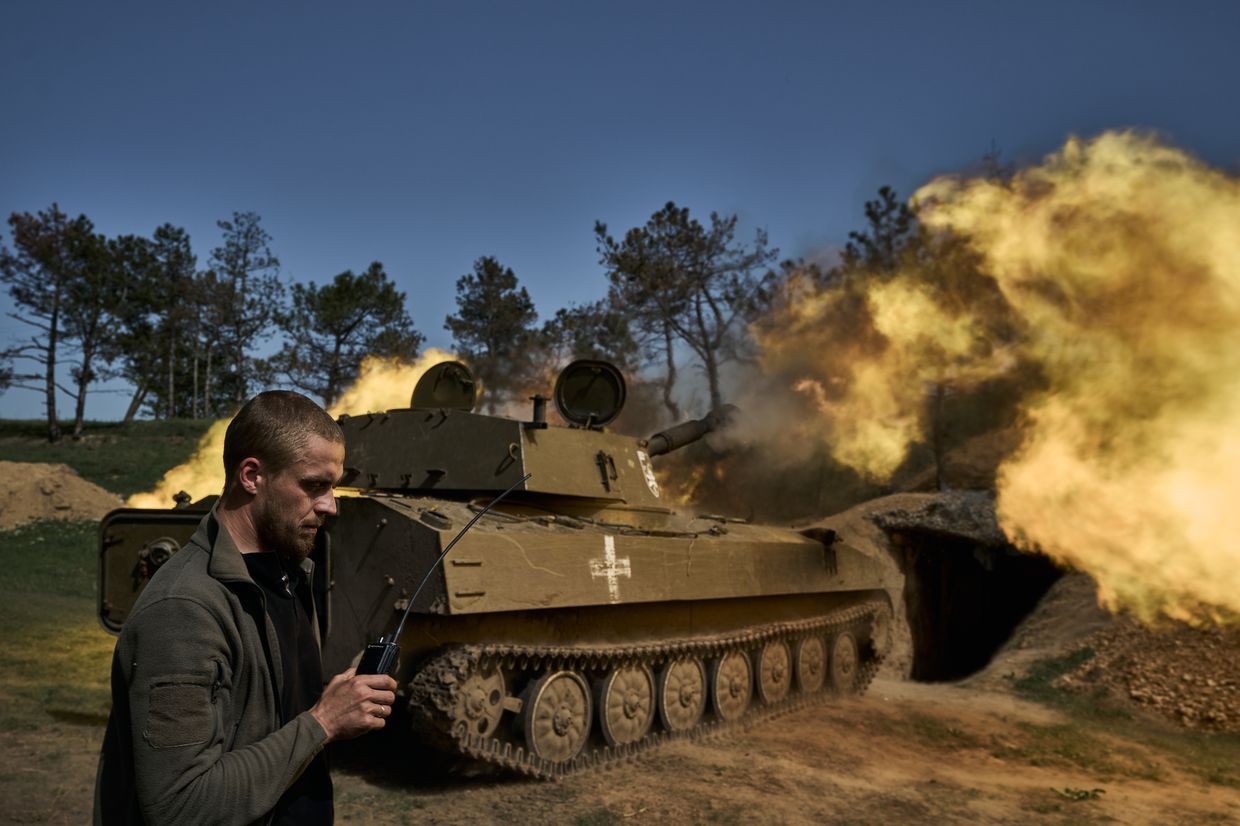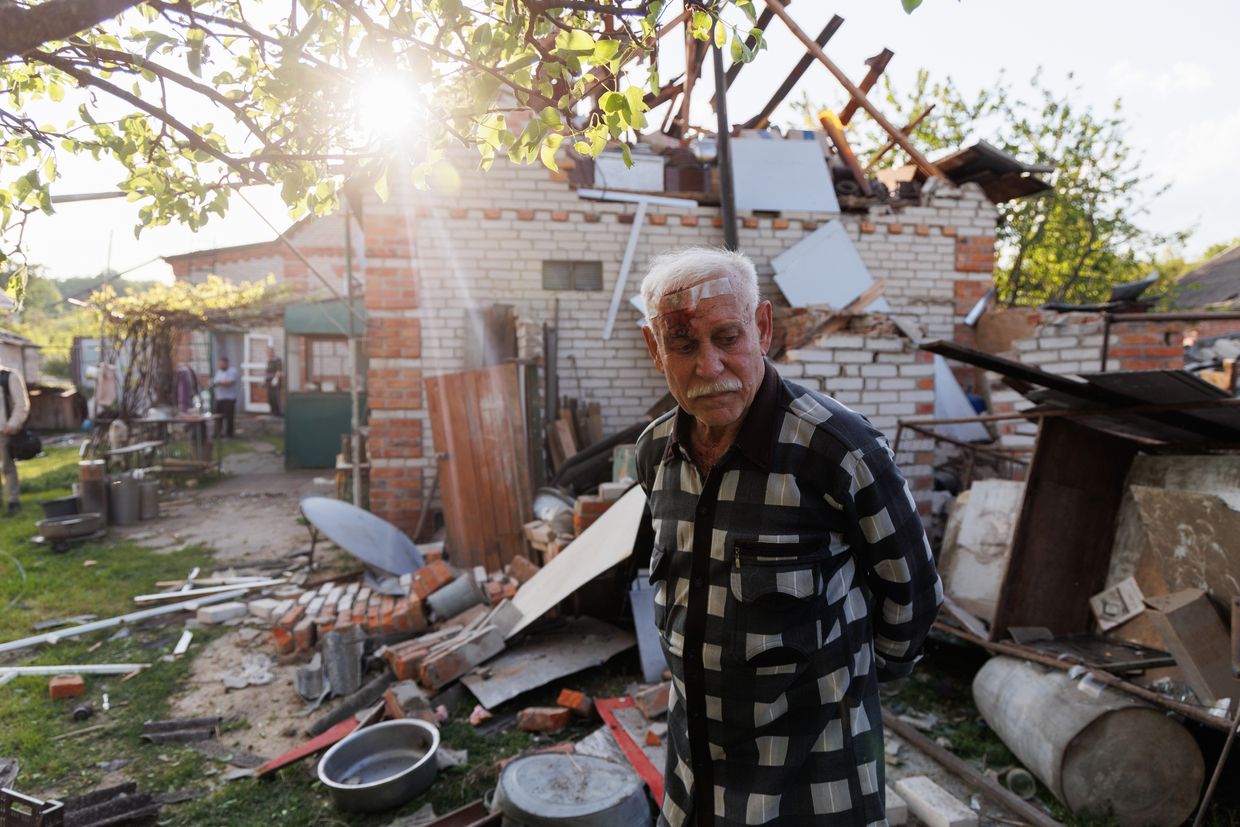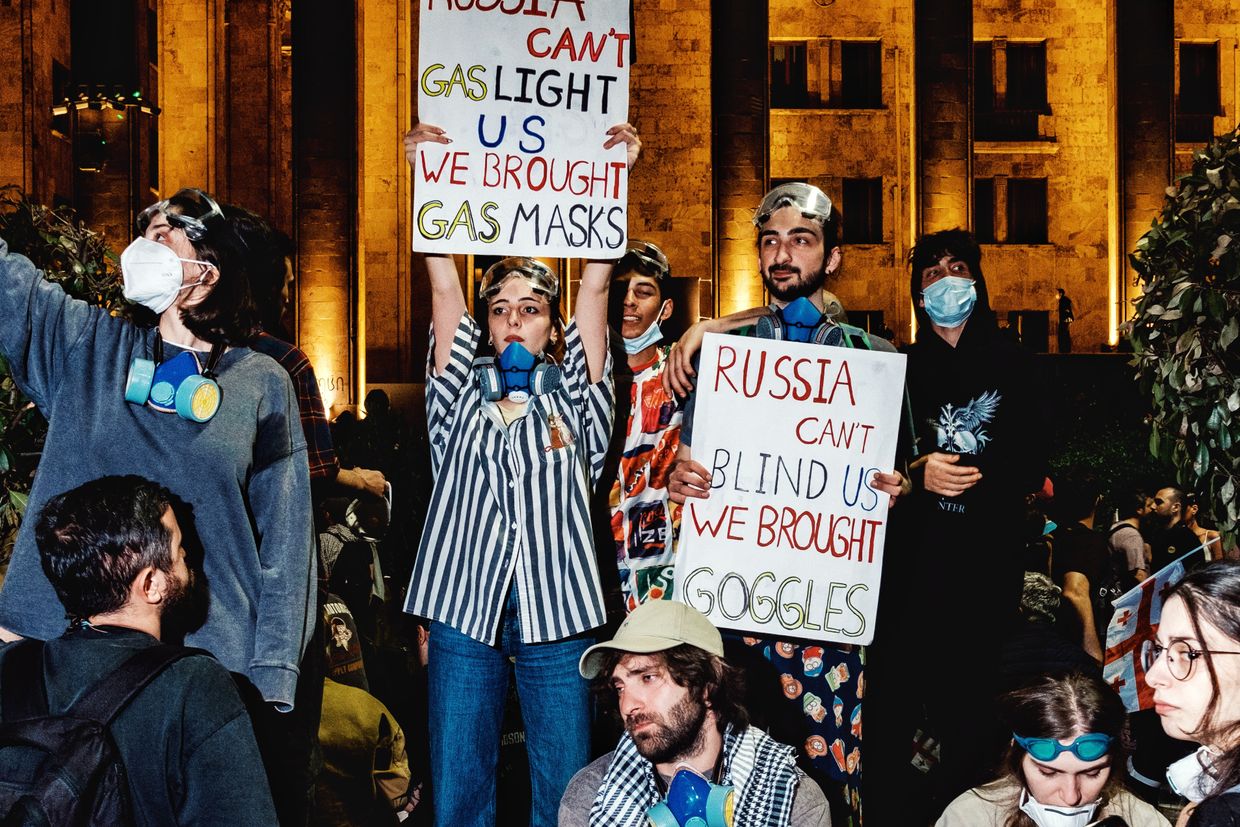Key developments on April 30:
- Germany delivers Skynex air defense system, Marder vehicles, ammunition to Ukraine
- Stoltenberg: Ukraine's trust in NATO 'dented' by aid delays
- Ukraine allocates funds for 300,000 drones
- Prosecutor General: Russia using cluster munition against Odesa points to deliberate targeting of civilians
- Lithuania's PM, president in favor of helping Ukraine bring back military-aged men
Germany has handed over 10 Marder infantry fighting vehicles, a Skynex air defense system, ammunition for Leopard 2 tanks, IRIS-T SLM air defense missiles, and other aid in its latest aid delivery to Ukraine, the German government said on April 29.
The latest tranche further included over 29,000 rounds for Gepard anti-aircraft systems, 7,500 155 mm artillery shells, 18,000 rounds of 40 mm ammunition, and an unspecified number of 120 mm mortar ammunition.
Berlin also delivered a TRML-4D radar system, six Oshkosh M1070 tank transporters, 3,000 RGW 90 portable grenade launchers, and 100,000 first aid kits.
Ukraine further received a Beaver bridge-laying tank, a Dachs armored engineering vehicle, nine mine-clearing systems, an AMPS protection system for helicopters, 60 outboard motors, 600 LED lamps, almost 2,000 camouflage nets, and 2,000 ponchos.
The German government website also confirmed that the delivery of the third Patriot air defense system is in the works.
Berlin announced on April 13 its plans to deliver another Patriot system to Ukraine as Kyiv desperately needs additional air defense systems to repel increased Russian attacks.
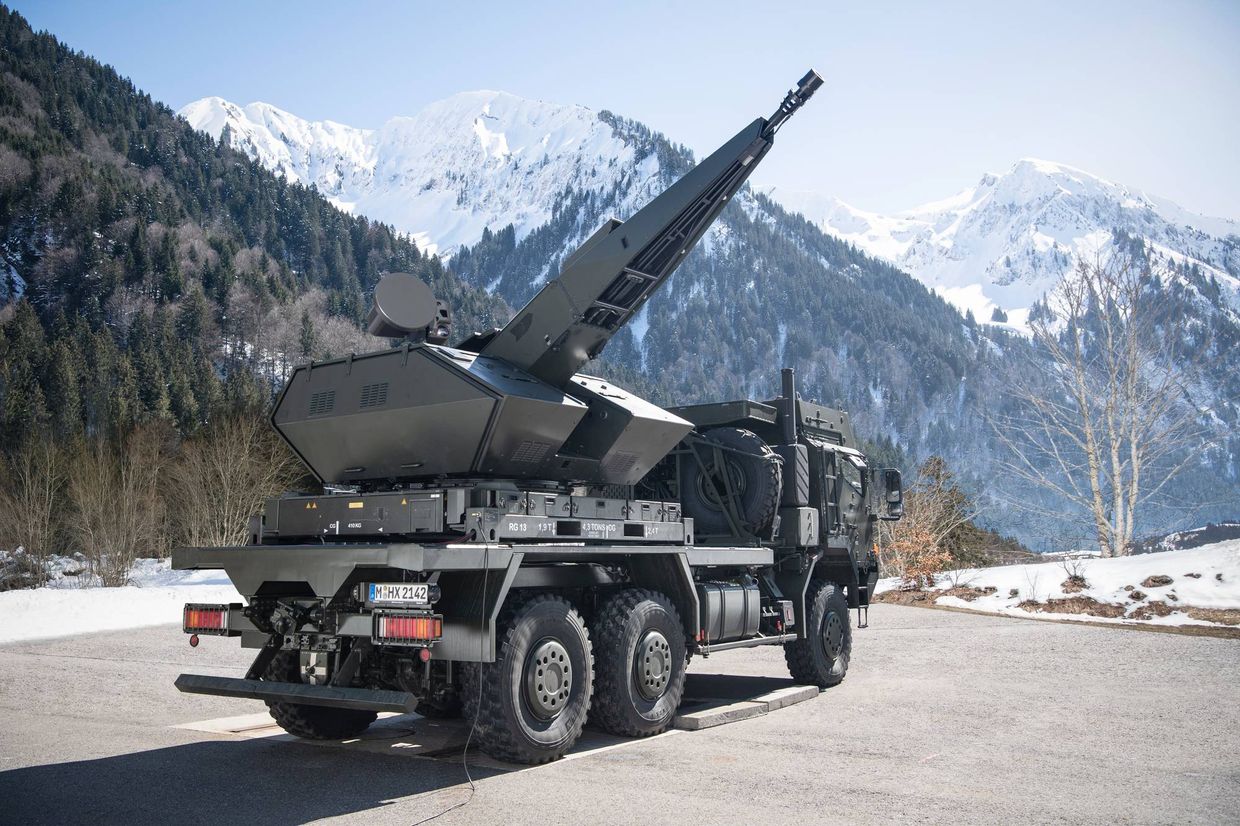
Stoltenberg: Ukraine's trust in NATO 'dented' by aid delays
NATO has "not delivered what we have promised" and delays in aid to Kyiv have "put a dent" into Ukraine's trust of the military alliance, Secretary General Jens Stoltenberg said on April 30.
Ukraine has faced a worsening situation on the battlefield in recent weeks as well as an increase in successful Russian aerial attacks, both compounded by delays in Western assistance, particularly the months-long wait for the latest U.S. aid package.
The European Union also fell short of its target of providing Ukraine with one million rounds of artillery shells by March.
Speaking to Reuters as he traveled out of Ukraine after a meeting with President Volodymyr Zelensky on April 29, the NATO chief said an overhaul of how international military aid was coordinated was required.
"We need a more robust, institutionalized framework for our support to ensure predictability, to ensure more accountability and to ensure burden-sharing," he said.
"Of course, the fact that we have not delivered what we promised has put a dent ... into the trust."
Stoltenberg arrived in Kyiv on April 29 for a previously unannounced visit, his third to Ukraine since the beginning of the full-scale Russian invasion.
It took place amid a deteriorating situation on the battlefield and Stoltenberg has said that the almost seven-month delay in U.S. assistance for Kyiv "has had real consequences."
Stoltenberg suggested on April 30 that one possible solution was to create a multi-year plan that clearly sets out the contributions expected from each NATO member.
"That will make it easier to plan. It will make it clear what each and every ally is expected to deliver," Stoltenberg said.
On April 30, Zelensky said Ukraine would join NATO only after defeating Russia's full-scale invasion.
Stoltenberg said the alliance also aims to help Ukraine get as close as possible to NATO standards as part of its integration process, adding that there is "a lot of work ahead."
"When we invite a country to join the alliance, we need not just a majority, but the perfect agreement between all 32 members," Stoltenberg said, adding that a consensus about the path toward Ukraine's membership has not been reached yet, but the alliance is "currently working on it."
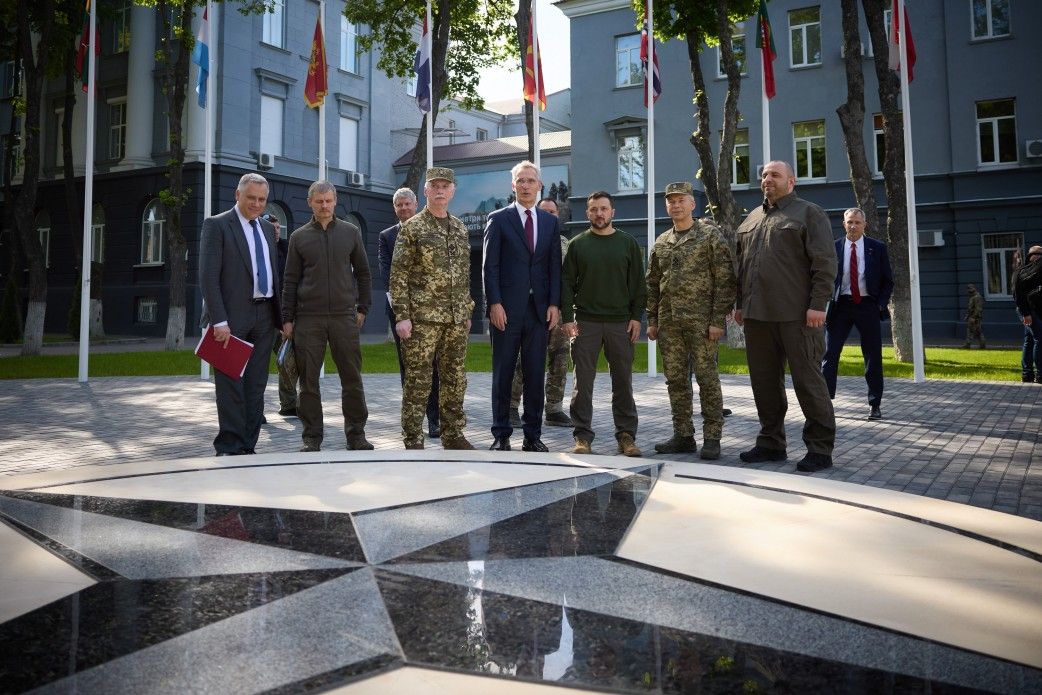
Ukraine allocates funds for 300,000 drones
Ukraine has allocated a further Hr 15.5 billion ($391 million) to purchasing drones for the country's Armed Forces, enough to buy 300,000, Prime Minister Denys Shmyhal said on April 30.
Drones have been a key tool in Ukraine's defense against Russia's war. President Volodymyr Zelensky has said that surpassing Russia in drone operations is one of the top priorities in 2024.
In a post on Telegram, Prime Minister Denys Shmyhal said the newly-allocated funds were in addition to Hr 43.3 billion ($1.1 billion) already allocated in 2024.
"With the funds allocated today, 300,000 drones will be supplied to our Security and Defense Forces," he said.
Zelensky signed a decree on Feb. 6 creating a separate branch of Ukraine's Armed Forces dedicated to drones.
It will reportedly focus on creating special drone-specific units, increasing production, ramping up training, and pushing innovations.
Ukraine has the capacity to produce 150,000 drones every month and may be able to produce two million drones by the end of the year, Strategic Industries Deputy Minister Hanna Hvozdiar said on March 5.

Prosecutor General: Russia's use of cluster munition against Odesa – deliberate targeting of civilians
Russia attacked Odesa on April 29 with an Iskander missile armed with a cluster munition warhead, Prosecutor General Andrii Kostin said on April 30.
Russian forces attacked the southern port city late on April 29, killing at least five people and injuring around 30, including children.
"This (cluster munition) is an indiscriminate weapon, the use of which can lead to significant casualties among the civilian population," the Prosecutor General's Office said on Telegram, citing Kostin.
"The investigators have a reason to believe that the decision to use such a weapon was taken by the Russian military officers deliberately to kill as many Ukrainian civilians as possible."
According to the prosecutors, fragments of the missile were uncovered within a radius of 1.5 kilometers from the site of impact.
"The investigation is ongoing. We will find and punish those who issue criminal orders to attack peaceful Ukrainian cities," Kostin said.
Ukrainian officials have repeatedly accused Russia of using cluster munitions to target civilian areas. These weapons "spray" small bomblets across a wide area, with some of them detonating long after the attack, posing a continued danger to the local population.
In a post on social media, Zelensky said more support was needed from Ukraine's allies to stop "Russia's regular missile attacks, as well as the occupier's efforts to destroy as many Ukrainian positions as possible."
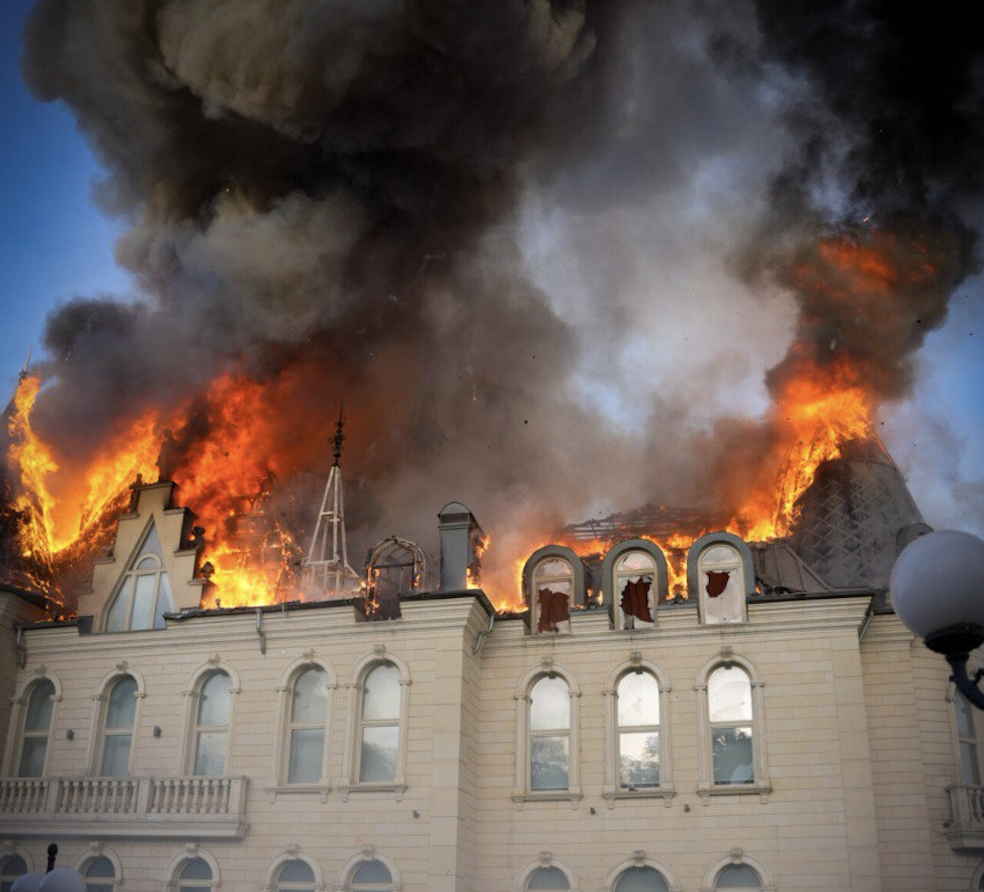
Lithuania's PM, president in favor of helping Ukraine bring back military-aged men
Lithuanian President Gitanas Nauseda and Prime Minister Ingrida Simonyte voiced support for helping Ukraine bring back its military-aged men living abroad, but after consultations with the EU and Kyiv, LRT reported on April 29.
As Ukraine seeks to ramp up its mobilization efforts, it has introduced certain restrictions on consular services and issuing passports for Ukrainian men aged 18 to 60 living abroad that can't provide documents signaling that they have the right to legally leave Ukraine during martial law.
Poland and Lithuania have already indicated that they are exploring ways to help Ukraine bring their fighting-aged men back home, but no clear steps have been presented.
"Ukraine needs to have its mobilization plans," Nauseda said on the LRT Radio on April 29.
"Ukraine must have the means and instruments to invite its young men to serve their homeland. We must cooperate with Ukraine in every sense."
Simonyte said that some steps to help Kyiv should be taken, but they should be discussed on the EU level.
"We could probably look for some ways to make sure that a person has performed their mobilization duty or is exempted from it when we consider whether to extend their temporary residence permit," the prime minister suggested.
"But we need to work not only with the Ukrainian authorities but also more broadly because right now, the EU has the so-called temporary protection in place for Ukrainian people."
In October 2023, the EU officially prolonged the Temporary Protection Directive for Ukrainian refugees until March 2025.
Evelina Gudzinskaite, the head of Lithuania's Migration Department, said there is currently no legal basis necessitating Vilnius to help Ukraine bring back its citizens.
"Some national legislative initiatives would have to be taken to implement these decisions, but again, there would be a huge question of how this would be compatible with EU law," Gudzinskaite said.
Polish Foreign Affairs Minister Radoslaw Sikorski said on April 27 that returning men of draft age to Ukraine is "ethically ambiguous" and Ukraine will thus have to "take the initiative" in the process.
